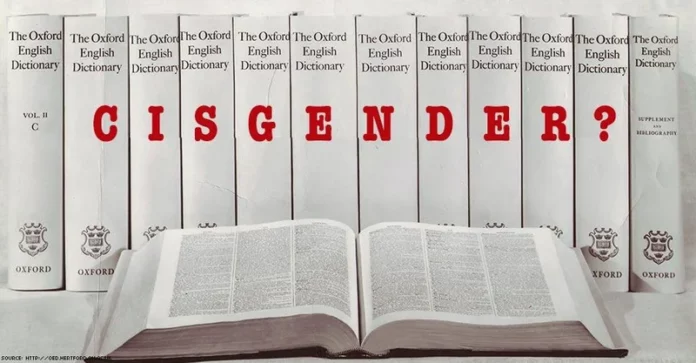Consider a now familiar inclusivity power move.
Imagine you are a transwoman, and you notice that someone refuses to call you by your preferred pronouns. Your sense of being rejected and excluded smarts terribly, and your smouldering indignation against transphobia and verbal violence is fanned into a flame. So, you decide you are going to stand on your gender-identity rights and insist that this bigoted and immoral person calls you by your preferred pronouns.
If the linguistic offender does not immediately apologise and conform to your preference request, then the argument comes out that anyone’s refusal to treat a transwoman as a real woman (in all regards) is an act of hate speech, and the hate speaker is—in the final analysis—seeking to advance transgender-identity genocide. If the linguistic offender does not correctly engage in the identity language game required by the transwoman, this is the same thing as denying that transwomen exist, and this is the same thing as wishing to exterminate transpeople. Further, linguistic non-compliance with queer identity designations is an offence against all people in its disrespect for each person’s right to self-determined gender identity. Hence, if the offender is not intending to deny the transwoman their right to exist, they must ‘get over’ their outdated prejudices and penitently use whatever pronouns any trans person self-designates.
Let us play this exact same logic in a different register. But a point of clarification needs to be made first.
If a transperson can subjectively self-define their gender, regardless of their sex, then this implies that sex itself (as an objective biological reality) has no relevance to whether someone is a woman or a man, or whether they are any other socially situated gender designation. Queer gender theory thus must invent a term for someone who just happens to be of the female sex and who also gender-identifies as a woman. This person is now called a Ciswoman. In queer theory, a Ciswoman is no more a Real or Natural Woman than a Transwoman, because sex and gender are considered entirely separate matters. Here, all socially recognized gender norms are held to be entirely linguistically, performatively, and subjectively determined, and they are exactly not natural, and sex has nothing to do with gender at all.
Let us now imagine that I am a biological female who thinks that queer theory is delusional, and I self-identify as a Natural Woman. In my identity designation I am a woman (without being Barbie-doll stereotypical), and I believe this to be the case because I am a person of the female sex. To me, I am being misgendered if a Transperson calls me a Ciswoman, and I am violating my own sense of who I am if I am required to speak and act as if I am a Ciswoman. For a Ciswoman is only accidentally both a female and a woman. In contrast, my gender identity is of a Natural Woman, not a Ciswoman, precisely because my naturally sexed female body determines that I am a woman and not a man. Indeed, by calling me a Ciswoman my very identity as a Natural Woman is being denied. For me to be required to participate in treating people who I know to be of the male sex as if they are a ‘woman,’ and to be required to use feminine linguistic gender terms in addressing them, implies that I agree that sex and gender have no connection. This is not the case. At least for myself, I simply do not believe that sex and gender have no connection. So, if I identify as a Natural Woman, then clearly, I am being required to participate in my own gender-identity genocide if I must accept that Ciswomen, Cismen, Transwomen, and Transmen are real, and not imaginative performative make-believe and that Natural Women and Natural Men do not exist.
Reading gender theorists like Judith Butler, it is clear that all naturalist conceptions of human sexuality are categories of personal identity and social organization that queer activists are determined to destroy. Sex naturalism presupposes that there are Natural Women and Natural Men and that broadly accepted gender roles differ between women and men as a cultural function that is—at base—sexually determined. But Bulter is firmly ‘anti-naturalist’ when it comes to the meaning and nature of sex. So, is it not an act of identity genocide to call a person who identifies as a Natural Woman or a Natural Man, a Ciswoman, or a Cisman? And why should people who identify as Natural Women not be allowed to have exclusionary sex-determined change rooms and sporting competitions, as if (impossibly) a person’s real sex has no relevance in such contexts? Can one now have no sex-linked and reality-linked identity rights? How are we to preserve fairness between the sexes and safety for biological women if we are now required to make no distinction at all based on sex?
There is an unavoidable and significant logical problem here with queer gender theory.
If we are to accept bivalent logic (where propositions are either true or false) then if we are to treat subjectively defined gender identity as true, then any objective sexually-determined identity designation is false. (Hence maternity wards must be gender inclusive and must never assume that a person having a baby is of any given sex.) Likewise, if we are to treat objective sexually determined identity designations as true, then subjective gender identities that deny the reality and social significance of a person’s objective sex are false. (Hence whatever a person’s self-designated gender, biological men should not enter women’s change rooms.) Logically, you cannot have both identity categories being treated as true.
There is a very practical way of accommodating this fundamental matter of bivalent logic, without deciding whether queer gender theory or naturalist understandings of the meaning of human sexuality are right or wrong. It is the liberal solution. Here, people can believe, have, and say whatever subjective identity designations, personal values, and metaphysical or religious beliefs they like, but objective behaviours must be tied to objective facts.
This is how an old-fashioned liberal solution to the above linguistic identity conundrums would work.
Should a transperson who is objectively male wish to be addressed by feminine pronouns, that person is entirely free to request their preferred linguistic designations of their friends, family, work colleagues, and strangers. But whether such a preference is accepted or not by anyone is up to each person.
Read it all in Inspecting Gender



